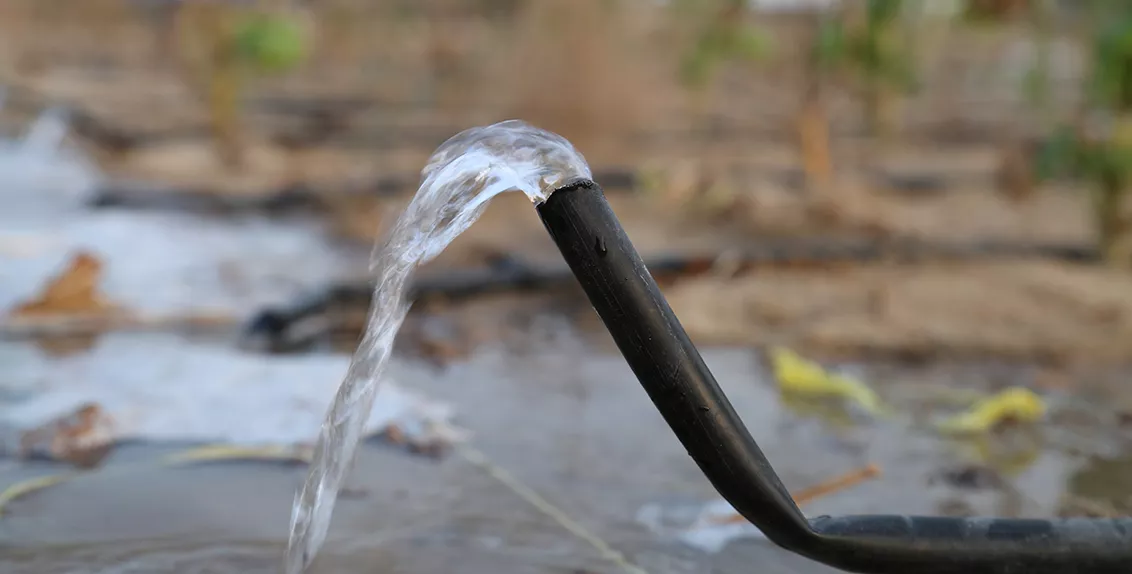Management of natural resources in marginal environments

This work aims to contribute to more efficient and sustainable management of natural resources in marginal environments through best-bet practices, crops and technologies. The overall goal is to increase agricultural productivity and thus improve food, nutrition and water security, and create jobs and livelihoods for communities living in these environments.
Water
We promote sustainable management of fresh water and efficient use of alternative water resources for agriculture such as treated wastewater, drainage water, produced water, and different types of saline water, including reject brine and sea water.
Areas of applied research:
- Irrigation efficiency and agricultural water productivity through modeling, water accounting and other tools;
- Air-to-water technology;
- Precision agriculture;
- Remote sensing and GIS applications;
- Surface and groundwater modeling;
- Sustainable irrigation systems, including small-scale irrigation solutions, tailored to local environments.
Land
We work on reducing land degradation and restoring degraded lands. This includes assessment of existing cropping systems in marginal environments, and development of profitable and sustainable crop production systems for degraded lands.
Areas of applied research:
- Integrated soil, water and crop management practices;
- Soil improvement through organic and inorganic amendments;
- Land use, agro-climatic zoning, and reclamation and use of marginal lands.
Policy
We support our country partners in developing policies and strategies on sustainable water and land management, as well as food, nutrition and water security in marginal environments, and help to build local knowledge and capacity in the process. We also provide technical backstopping – monitoring, supervision and evaluation – for development banks and institutions on agriculture in general and land management in particular.